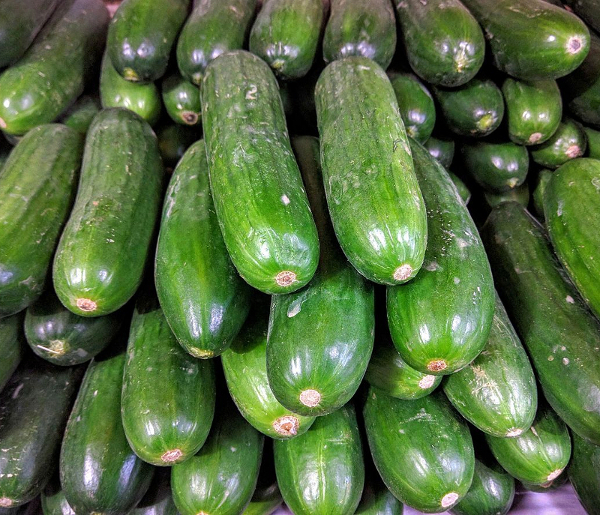MIGAL AI quadruples shelf life of cucumbers
- November 1, 2022
- William Payne

The MIGAL Galilee Research Institute has used a treatment protocol devised by AI to quadruple the post-harvest life of cucumbers from two to nine weeks. The researchers, supported by Israel’s Ministry of Science and Technology, used a smart sequential treatment protocol suggested by AI algorithms they had developed.
The research was led MIGAL Professor of Computer of Science, Prof. Ofer Shir, as well as Dr Dan Gamrasni, Postharvest Research Associate at the Institute.
The MIGAL team’s algorithms used an AI system to investigate the combinatorial search-space of postharvest cucumber treatment models, learning the fruit’s response to variations in timings, ordering, and activation levels of certain operations. At the end of the process, a single multi-stage treatment protocol was selected for testing in MIGAL’s fields and laboratories.
The product selected for the experiment was the cucumber, a sensitive fruit with a high wastage rate due to its average postharvest storage lifespan of less than two weeks. Immediately after harvest, the fresh cucumbers were transported to the laboratory, weighed, treated using the protocol suggested by the AI system, and stored for four weeks in accordance with the AI protocol. At the end of this period, it was determined that the fruit’s weight, color, crispness, and other qualities had undergone minimal change, and the cucumbers were stored again for an additional 5 weeks. Final evaluation demonstrated a continued marketable level of quality (see photos below).
MIGAL researchers have now begun investigating the development of AI-based algorithms and multi-stage protocols for other agricultural use-cases, even at the growing stages. One area under consideration is the optimisation of the complex treatment protocols used for vertical farming, a new field in which farmers grow produce intensively in controlled environments. MIGAL researchers hypothesise that these AI-based algorithms will enable optimisation of protocols in other combinatorial search-spaces – for instance, with variations of lighting, gasses, temperature, fertilisation methodologies, water temperatures and other resources – with the aim to reduce production costs while increasing yields.
Prof. Shir said “In launching this project, we hypothesised that a ‘smart’, algorithmically-guided combination and sequencing of existing produce treatments could multiply their preservation effect, significantly extending fruit and vegetable shelf-life after harvest. However, the results we achieved were much better than we had expected: our protocols more than quadrupled the shelf-life of cucumbers, keeping them fresh for a full nine weeks.”
“It remains shocking to know that a full third of the produce grown today continues to be wasted, even as farmers intensify their struggle to increase yields in the face of climate change and urbanisation,” commented Dr. Gamrasni. “The aim of our research is to help reduce waste across the global food supply chain while enhancing the efficiency of existing agricultural processes and resources.”
Prof. Shir continued, “These results confirmed that ‘smart’ sequencing of multiple treatments can dramatically extend produce shelf life as compared with the protocols in use today. We know of no other project that has been able to extend produce postharvest shelf life by such an extent – and are eager to share our knowledge.”





